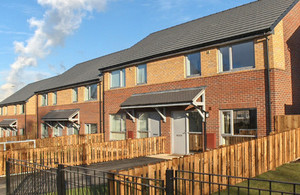Property
Property can be defined as something that a person or business has legal title over. Having legal title over property provides the owner with certain enforceable rights.
Property may be categorised as tangible (‘real’) or intangible. In the built environment, tangible property refers to real estate or land, whereas ‘personal property’, or chattel, is all that which is not ‘real property’.
In English common law, property includes all structures integrated with or affixed to the land, such as; buildings, dams, ponds, canals, roads, and so on. Property tends to have a monetary value attached to it and is therefore treated as an asset. However, it can also be seen as a liability, for example, if there is contamination on land or if someone is injured while on land and a court holds the property owner responsible for not preventing their injury.
Property can also be viewed as:
- A means to an end, providing space for a business to establish a working environment.
- An investment.
- A corporate asset that can be used as collateral to raise money.
- A development opportunity in which profit can be generated by adding value.
Property ownership is one of the key tenets of the capitalist socio-economic system. Adam Smith, one of the foremost capitalist thinkers, wrote that one of the ‘sacred laws of justice is to guard a person’s property and possessions’.
Property ownership may be private, collective or common; with the legal determination relating to who has the ‘bundle of rights’ and duties over the property. The four basic components, often referred to as a ‘bundle of rights’, of an economic good are:
- The right to use the good or resource.
- The right to derive income from the good or resource.
- The right to transfer the good or resource to others.
- The right to enforce property rights.
Ownership is referred to as being self-propagating, which means that the property owner is legally entitled to own the economic benefits of that property.
In economics, property rights are theoretical and legal constructs for determining control over, and use of, a resource or good. The basis for all forms of market exchange is derived from property rights.
Property developers construct, redevelop or refurbish buildings in order to make a profit. They are not the same as a property investors, who purchase completed buildings and sell them or rent them for profit, however, there is clearly considerable overlap.
Investment property is real estate that is used for the purposes of investment, with the aim being to earn a financial return. This return can be earned either through rental income, the capital gain on future resale of the property or, as is typical, both.
NB Digitisation for construction product manufacturers: a plain language guide, published by the Institution of Engineering and Technology (IET) in 2021 defines a property as: ‘…an inherent, or acquired feature of, a construction object, such as thermal efficiency or colour.’
Designing Buildings Wiki has a range of articles relating to property, including:
- Building.
- Commercial premises.
- Commonhold.
- Common land.
- Developer.
- Easements.
- Estate.
- Equity and loan capital for property development.
- Freehold.
- Glossary of property law terms.
- Housing tenure.
- Investment property.
- Land.
- Land acquisition.
- Land law.
- Leasehold.
- Legal indemnities for property.
- Liens.
- Mortgage.
- Owner.
- Personal property.
- Premises.
- Preparing to sell a commercial property.
- Place.
- Property chain.
- Property development finance.
- Property guardianship.
- Property marketing.
- Property ownership.
- Property rights.
- Property valuation.
- Off-plan property.
- Restrictive covenant.
- Right of entry.
- Right to access land.
- Specialised property.
- Types of building.
- Units.
Featured articles and news
A change to adoptive architecture
Effects of global weather warming on architectural detailing, material choice and human interaction.
How big is the problem and what can we do to mitigate the effects?
Overheating guidance and tools for building designers
A number of cool guides to help with the heat.
The UK's Modern Industrial Strategy: A 10 year plan
Previous consultation criticism, current key elements and general support with some persisting reservations.
Building Safety Regulator reforms
New roles, new staff and a new fast track service pave the way for a single construction regulator.
Architectural Technologist CPDs and Communications
CIAT CPD… and how you can do it!
Cooling centres and cool spaces
Managing extreme heat in cities by directing the public to places for heat stress relief and water sources.
Winter gardens: A brief history and warm variations
Extending the season with glass in different forms and terms.
Restoring Great Yarmouth's Winter Gardens
Transforming one of the least sustainable constructions imaginable.
Construction Skills Mission Board launch sector drive
Newly formed government and industry collaboration set strategy for recruiting an additional 100,000 construction workers a year.
New Architects Code comes into effect in September 2025
ARB Architects Code of Conduct and Practice available with ongoing consultation regarding guidance.
Welsh Skills Body (Medr) launches ambitious plan
The new skills body brings together funding and regulation of tertiary education and research for the devolved nation.
Paul Gandy FCIOB announced as next CIOB President
Former Tilbury Douglas CEO takes helm.
UK Infrastructure: A 10 Year Strategy. In brief with reactions
With the National Infrastructure and Service Transformation Authority (NISTA).
Ebenezer Howard: inventor of the garden city. Book review.
Airtightness Topic Guide BSRIA TG 27/2025
Explaining the basics of airtightness, what it is, why it's important, when it's required and how it's carried out.























Comments
[edit] To make a comment about this article, or to suggest changes, click 'Add a comment' above. Separate your comments from any existing comments by inserting a horizontal line.